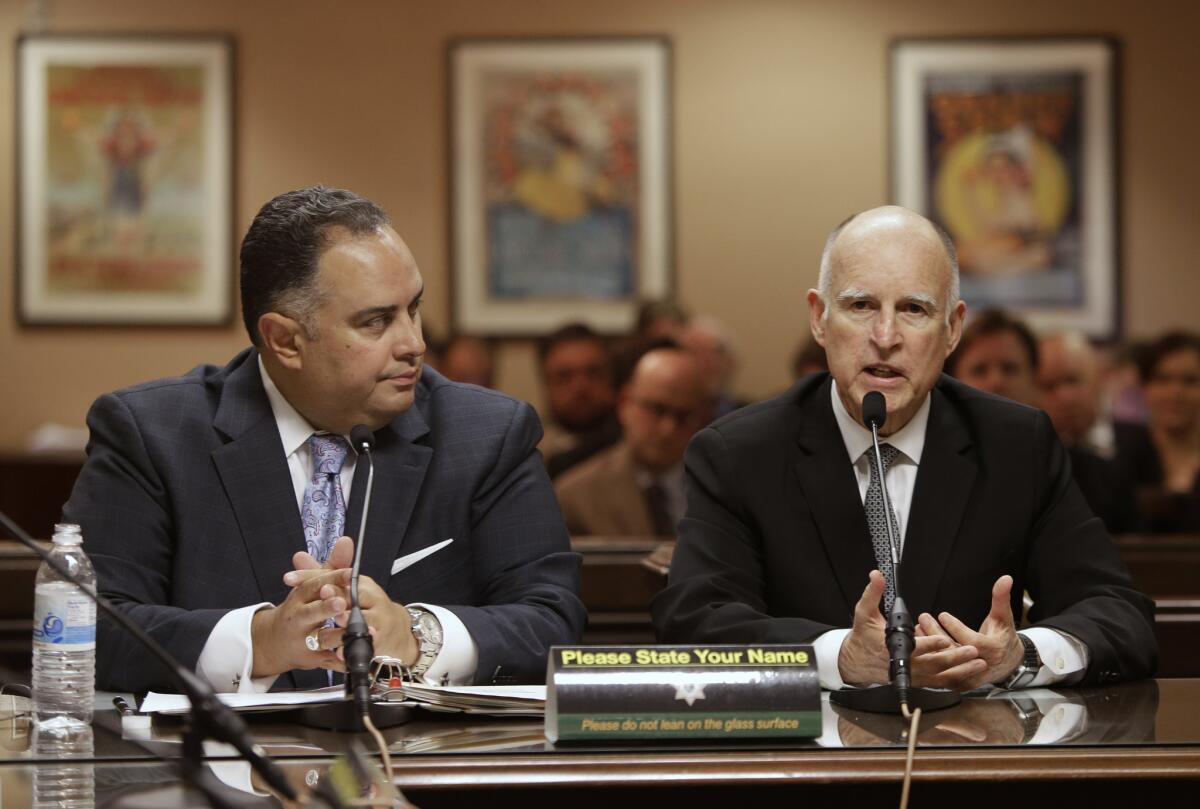Rainy-day fund plan for California will go on November ballot

The last time California voters approved a rainy-day fund plan, in 2004, they didn’t get what they bargained for. The state barely saved any money during successive budget crises and lurched through the recession with costly borrowing, new taxes and service cuts.
Now Democrats and Republicans in the Capitol say they have a better plan for cushioning the state from economic downturns and stabilizing its notoriously rocky finances. The Legislature unanimously approved the measure Thursday, and it will be placed on the ballot in November for voters to consider.
John A. Pérez (D-Los Angeles), who championed the proposal while he was Assembly speaker, said the proposed constitutional amendment “will help break the bad habits of the past” and “put California on a solid financial footing in the years ahead.”
The measure is the result of bipartisan negotiations during a special legislative session convened by Gov. Jerry Brown, who is running for reelection this year and trying to cement his reputation as a cautious steward of California’s finances.
The plan, if approved by voters, would set aside 1.5% of general fund revenue each year, in addition to spikes in revenue from capital gains taxes. Half the money would be deposited into a reserve fund and the other half would be used to pay off debt and cover long-term costs such as pensions for public employees.
According to estimates by the Brown administration, $1 billion will be set aside annually for each of those purposes over the next few years. Deposits into the reserve fund could be suspended and money could be withdrawn when revenue fails to keep pace with spending.
Liberal advocates are concerned that the measure would leave less money available to reverse recession-era budget cuts, and some conservatives prefer an earlier, abandoned proposal that contained tighter spending limits.
But no organized opposition emerged, and Claremont McKenna College political science professor Jack Pitney said he expects it to be popular with voters.
“Californians are very tired of annual budget crises,” he said. “The idea of setting something aside for a rainy day has great appeal.”
More to Read
Start your day right
Sign up for Essential California for news, features and recommendations from the L.A. Times and beyond in your inbox six days a week.
You may occasionally receive promotional content from the Los Angeles Times.







